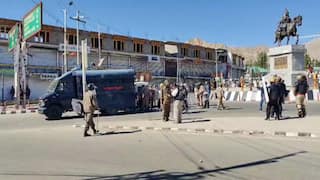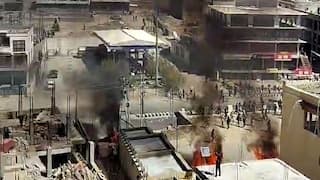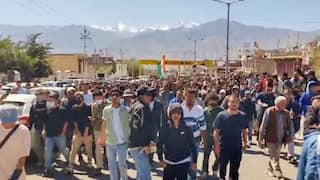'Taiwan Will Not Back Down On Its Sovereignty', Says President Tsai Ing-wen Post Xi Jinping's Speech
Taiwan's presidential office said that maintaining peace and stability in the Taiwan Strait and the region is the common responsibility of both sides and meeting on the battlefield is not an option.

New Delhi: Taiwan’s presidential office on Sunday said that Taiwan will not back down on its sovereignty or compromise on freedom and democracy. The Taiwanese people clearly oppose Beijing's idea of "one country, two systems" management, he emphasised in the statement, as reported by news agency Reuters.
The statement came after Chinese President Xi Jinping, in a speech at the opening of the Communist Party Congress in Beijing, said that it is up to the Chinese people to resolve the Taiwan issue and that Beijing will never renounce the use of force over Taiwan.
Maintaining peace and stability in the Taiwan Strait and the region is the common responsibility of both sides and meeting on the battlefield is not an option, Taiwan's presidential office said in the statement, as quoted by Reuters.
"No Room For Compromise", Says Taiwanese President Tsai Ing-wen
Earlier on Monday, Taiwanese President Tsai Ing-wen stated that there is "no room for compromise" over the sovereignty of the island nation and warned China that resorting to war must not be the option for cross-strait relations.
Tsai Ing-Wen remarks came during a speech marking Taiwan's National Day, also called Double Ten Day today. "The consensus of the Taiwanese people ... is to defend our sovereignty and our free and democratic way of life. There is no room for compromise on this," news agency ANI quoted President Ing-wen as saying during her national day speech, citing CNN.
Taiwanese President Tsai Ing-wen had pledged Taiwan's resolve to engage with the world to counter "a resurgence of authoritarianism," despite Beijing's threats.
Taiwan Facing Repeated Incursions From China After US House Speaker Nancy Pelosi's Visit
Taiwan has been facing repeated incursions from China's military, especially after US House Speaker Nancy Pelosi's visit. After the visit of the US delegation, Beijing launched large-scale military exercises in the vicinity of the island, which included live-fire drills and military aircraft overflights close to Taiwan's airspace.
The tensions between the two nations heightened after the visit of US lawmakers to the self-governed island. The visit by Pelosi became the highest-ranking US official to touch down on the island in 25 years.
Beijing cited the visit as the trigger for several days amid the large-scale military exercises in which China fired missiles over Taiwan and several Chinese warplanes breached Taiwan's air defence identification zone.
(With Inputs from agencies)







































